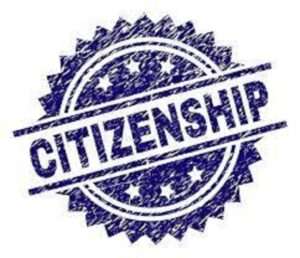The Volokh Conspiracy
Mostly law professors | Sometimes contrarian | Often libertarian | Always independent
Trump's Birthright Citizenship Order is Even Worse than Expected - and Even More Blatantly Unconstitutional
It applies to children of large numbers of legal visa-holders, as well as those of undocumented immigrants.

Yesterday, I pointed out that Trump's promised executive order denying birthright citizenship to undocumented immigrants was likely to be unconstitutional because it blatantly violates Section 1 of the 14th Amendment, which grants citizenship to anyone "born … in the United States and subject to the jurisdiction thereof." We now have the text of the order, and it is even worse than expected.
The order doesn't just deny birthright citizenship to children of migrants who entered the US illegally. It also denies it to children of those who entered the US on perfectly legal temporary work and tourism visas. As Reason immigration writer Fiona Harrigan explains, this will affect children of many thousands of work visa holders, including H-1B visa holders much-loved by Elon Musk, among others.
In a recent Just Security article, I critiqued the (very weak) arguments that children of undocumented immigrants aren't entitled to birthright citizenship because they are not "subject to the jurisdiction" of the United States. These arguments are even more absurd when it comes to children of legal visa holders. The latter and their parents are completely subject to US laws, arguably even more so than the undocumented. And the weak argument that children of undocumented immigrants don't qualify because their parents are "invaders" is still more ridiculous when it comes to children of people who entered legally.
The executive order only applies to children born after February 19 of this year. But if the legal logic behind it is sound, nothing would prevent the administration from applying it retroactively. Indeed, if children of these types of immigrants really are excluded from birthright citizenship, retroactive application might be constitutionally required.
If the order stands, it would also create a bureaucratic morass that threatens to engulf even children of native-born citizens. In order to secure citizenship for your child, it would no longer be enough to provide documentation of parentage or place of birth. You would also presumably need to show the parents had the appropriate legal status - and their parents before them, potentially all the way back to the first member of the family who entered the US, perhaps decades or centuries ago. After all, if there is even one break in the legal status of the family tree, it could potentially render succeeding generations ineligible for birthright citizenship! At the very least, this is likely to be a serious burden for poorer and lesser-educated parents, who may not have easy access to documentation going back decades.
Lawsuits challenging the order have already been filed by the ACLU (on behalf immigrant groups), and 18 state governments. I won't go into the procedural issues in detail. But I expect many, if not all, these plaintiffs will have standing to sue, and overcome other procedural hurdles. This is particularly likely in the case of some of the ACLU clients, who are expectant mothers on temporary visas, scheduled to give birth after February 19. Supreme Court precedent on state government standing is murky. But I tentatively predict at least some of the states should be able to get standing based on the fact that the citizenship status of residents affects funding streams for various federal grants to the states.
I also hope and expect that courts will ultimately strike down this order.


Show Comments (150)